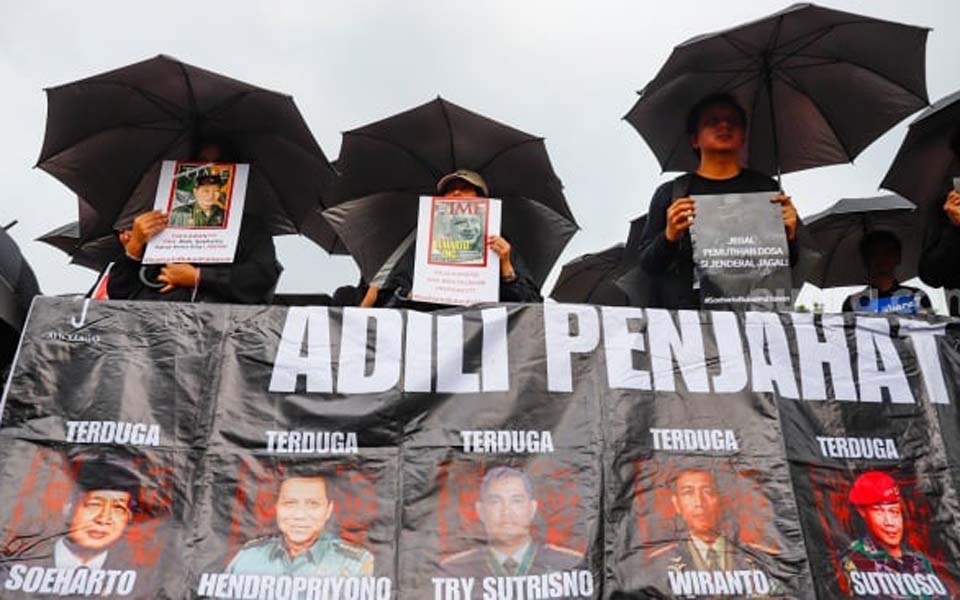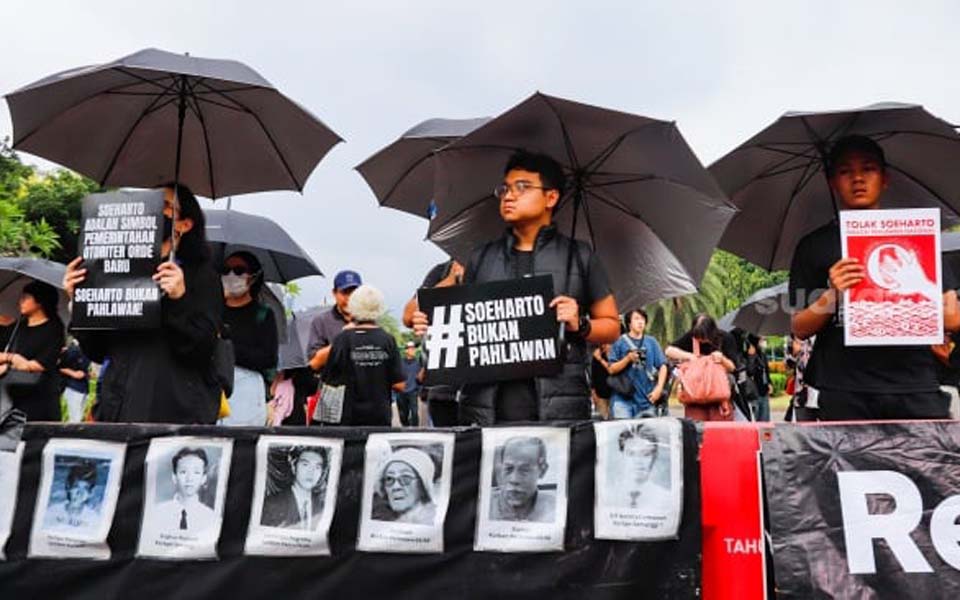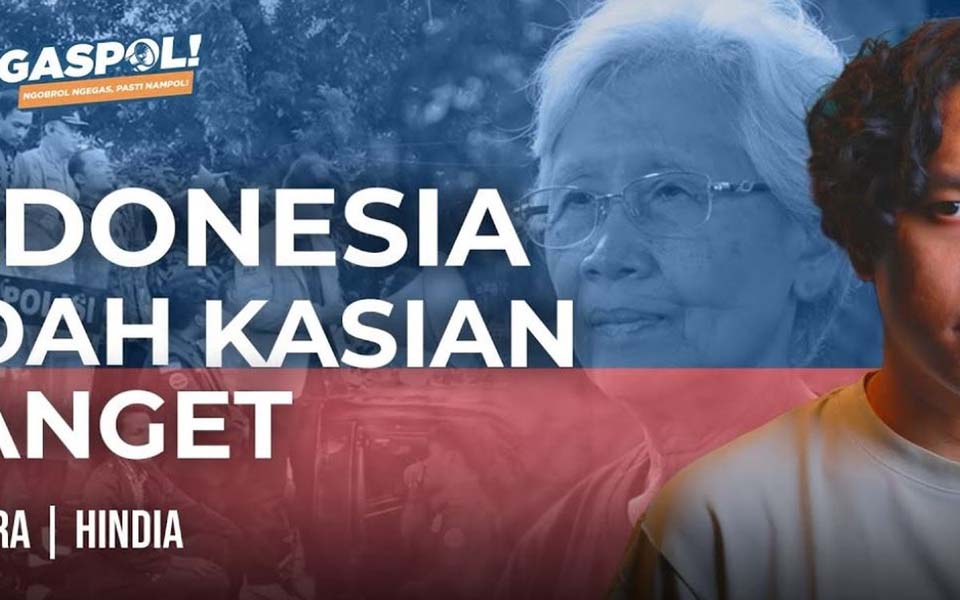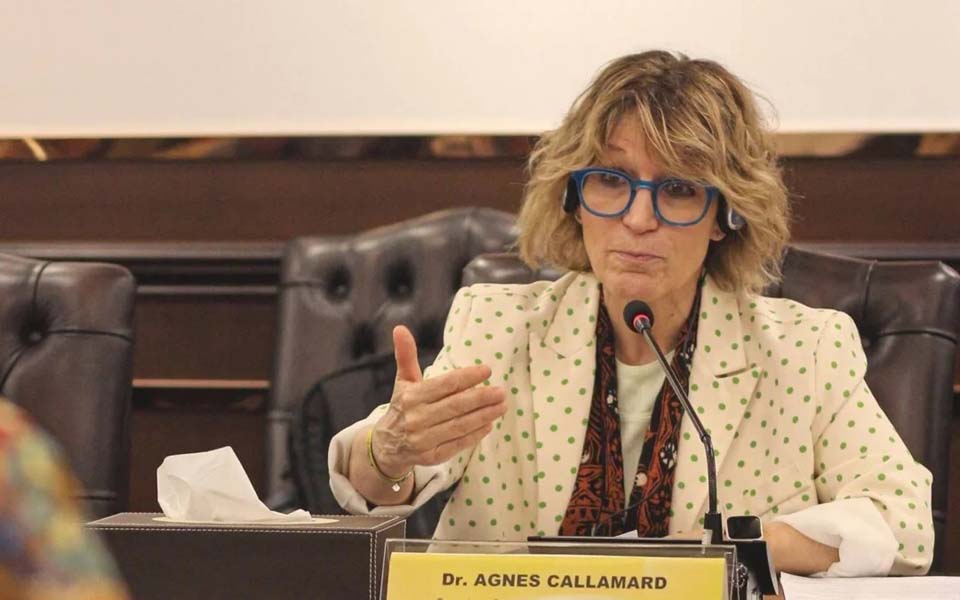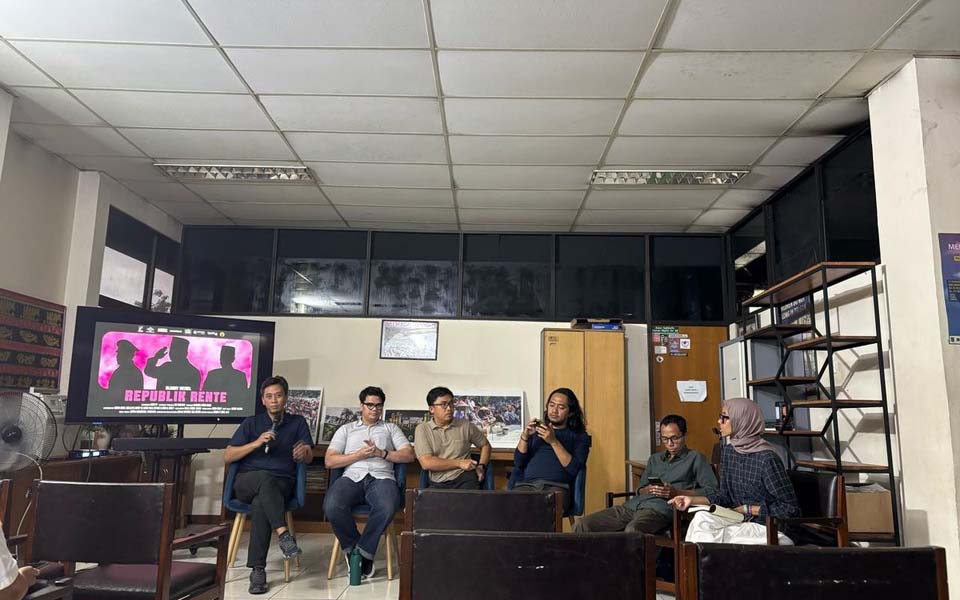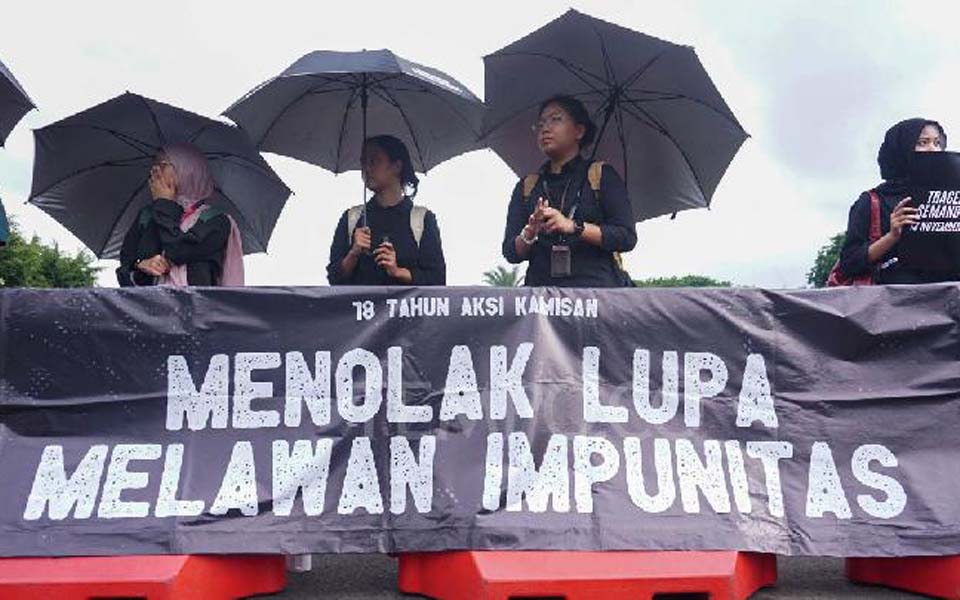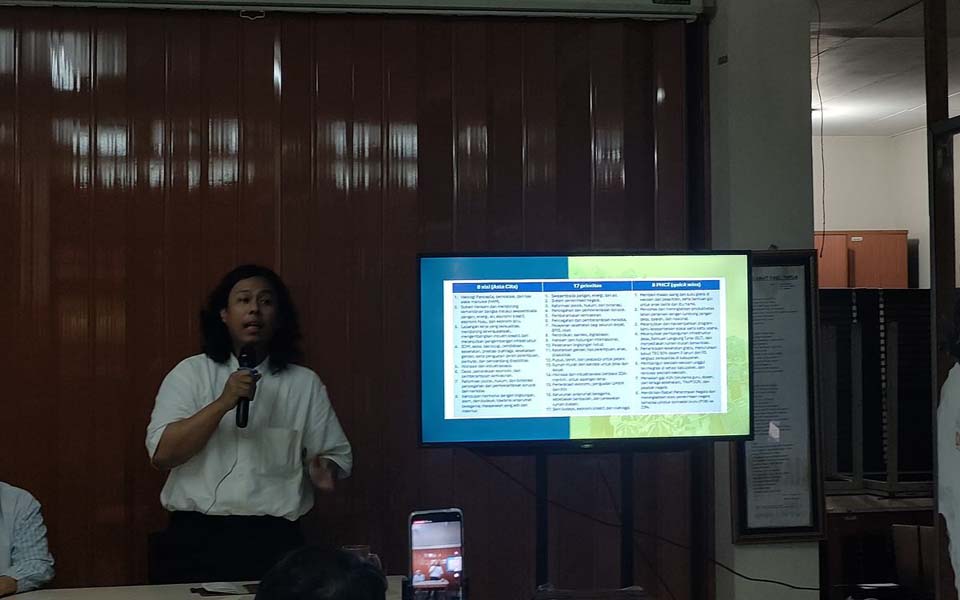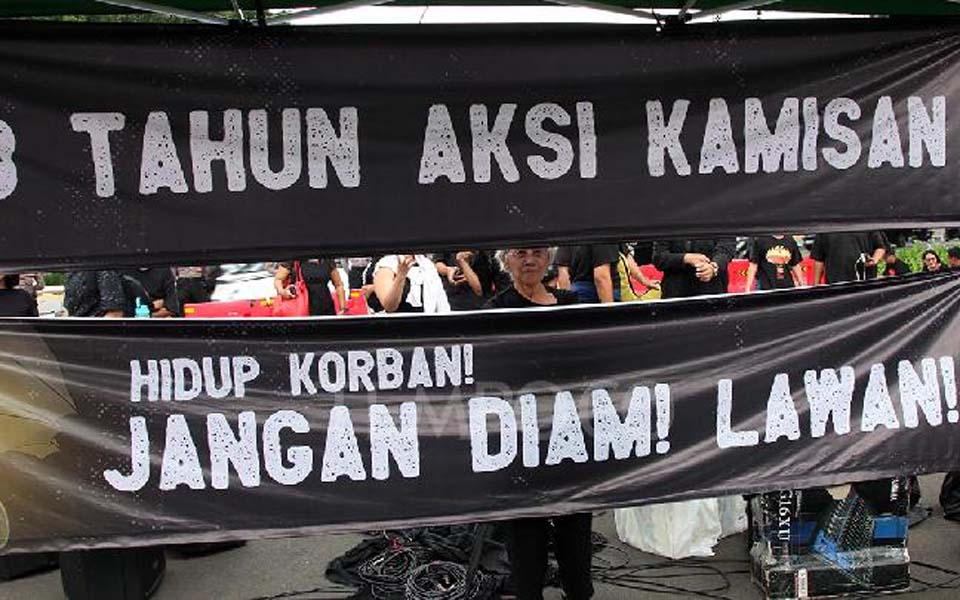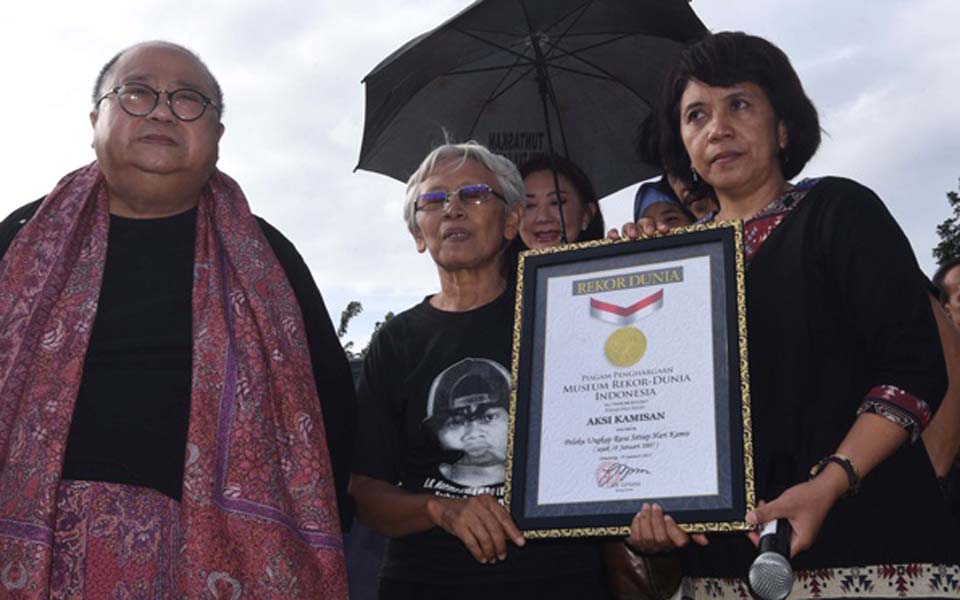Singgih Wiryono, Jakarta – The Commission for Missing Persons and Victims of Violence (Kontras) is urging President Joko "Jokowi" Widodo to apologise to the victims and survivors of past gross human rights abuses.
Kontras Coordinator Fatia Maulidiyanti says that Widodo needs to apologise because to this day the victims and survivors have yet to obtain their right to justice.
"Kontras urges the president to apologise to the victims, the survivors and the families of the victims of gross human rights violations in Indonesia, for the impact that arose due the incidents that occurred as well as from the neglect of the fulfillment of justice and other rights to this day", said Maulidiyanti in a written statement on Friday May 5.
Past mistakes
Amnesty International Indonesia said the government's unwillingness to apologies to the victims of rights abuses is a form of the state refusing to admit that mistakes occurred in the past.
Yet according to Amnesty Executive Director Usman Hamid, an apology is one of the important ways the state can express regret over human rights violations that have occurred.
"In the absence of an apology, it means that the state does not recognise mistakes, and gross human rights violations have the potential to be repeated", he said in a written statement on Friday.
Hamid said that apologising to the victims was one of the forms of reparation that must be provided by the state to the victims of rights abuses.
He gave examples of several countries that have issued apologies to pull back the boundaries between past and present because of rights violations. In Chili for example, President Patricio Alwyn apologised to the victims of past abuses.
"In Australia, Prime Minister Kevin Rudd also apologised to Aboriginal and Torres Strait Islanders, especially the lost generation (the Stolen Generation), for the forced separations carried out by the Australian government. Even the Dutch King Willem Alexander apologised to the Indonesian people who were victims of past Dutch colonial cruelty", he said.
No apology
The calls by Amnesty and Kontras were in response to a statement by Coordinating Minister for Security, Politics and Legal Affairs Mahfud MD who said that the government would not apologies to victims of past abuses.
Mahfud said that the government would not do this because it was not one of the recommendations made by the Team for the Non-Judicial Resolution of Past Gross Human Rights Violations (PPHAM) to the government.
"In the recommendations on the non-judicial settlement there was no apology by the government to the public because of these incidents. But the government has already stated that the incidents did indeed occur and that the government regrets these incidents", said Mahfud at the Presidential Palace Complex in Jakarta on Tuesday May 2.
"So there will be no apology and there is no change in legal status of these past incidents. Namely, for example Tap MPRS [Provisional People's Consultative Assembly Decree] Number 25/1966 still applies as a decree that cannot be changed", he said referring to the 1996 decree on the dissolution of the Indonesian Communist Party (PKI) and prohibitions on Marxist, Leninist and communist teachings.
In addition to this, past incidents of gross human rights violations that have been ruled on by courts also remain in force. So, continued Mahfud, the government is focusing on the victims of 12 cases of past rights violations.
"And of course these incidents cannot be added by the government because according to legislation determining if it is a gross human rights violation or not is up to Komnas HAM [the National Human Rights Commission]", he said.
"And Komnas HAM has recommended 12 cases that occurred over the last few decades. Now I want the public to understand the difference between gross human rights violations and serious crimes", he said.
Mahfud also took the opportunity to stress that the government will not be pursuing the perpetrators in the non-judicial process of settling past incidents of rights violations.
This is because the government has already decided on a non-judicial resolution that emphasises the victims.
"So the emphasis is on the victims, not the perpetrators. We will not pursue the perpetrators under this non-judicial resolution. Because that is a matter for Komnas HAM and the DPR [House of Representatives]", he said.
Mahfud explained that when it comes to perpetrators, then this is related to a judicial (legal) resolution. "Later it must be decided by Komnas HAM together with the DPR and then be submitted to the government", said Mahfud.
Earlier this year on January 11, President Widodo publically acknowledged that 12 incidents of gross human rights violations had occurred in Indonesia. Widodo also expressed his regret over the incidents but did not make an apology to the victims.
The following are the 12 incidents acknowledged by Widodo:
1. The 1965-1966 mass killings
2. The Mysterious Shootings (petrus) in 1982-1985
3. The Talangsari incident in Lampung, 1989
4. The Geudong House and Sattis Post incidents in Aceh, 1989
5. The forced disappearances of activists in 1997-1998
6. The May 1998 riots in Jakarta
7. The Trisakti and Semanggi I-II incidents in 1998-1999
8. The murder of shamans in 1998-1999
9. The Simpang KKA incident in Aceh, 1999
10. The Wasior incident in Papua, 2001-2002
11. The Wamena incident in Papua, 2003
12. The Jambo Keupok incident in Aceh, 2003
[Abridged translation by James Balowski based on two articles in Kompas.com on May 5. The original title of the lead article was "Jokowi Didesak Minta Maaf kepada Korban Pelanggaran HAM Berat Masa Lalu".]






